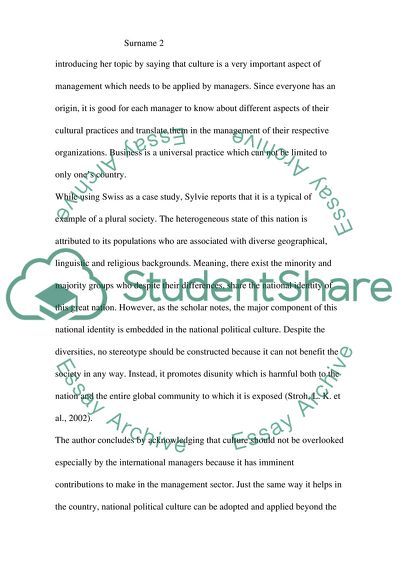Cite this document
(Is National Culture Still Relevant to Management in a Global Context Essay, n.d.)
Is National Culture Still Relevant to Management in a Global Context Essay. https://studentshare.org/marketing/1816506-individually-written-report
Is National Culture Still Relevant to Management in a Global Context Essay. https://studentshare.org/marketing/1816506-individually-written-report
(Is National Culture Still Relevant to Management in a Global Context Essay)
Is National Culture Still Relevant to Management in a Global Context Essay. https://studentshare.org/marketing/1816506-individually-written-report.
Is National Culture Still Relevant to Management in a Global Context Essay. https://studentshare.org/marketing/1816506-individually-written-report.
“Is National Culture Still Relevant to Management in a Global Context Essay”. https://studentshare.org/marketing/1816506-individually-written-report.


